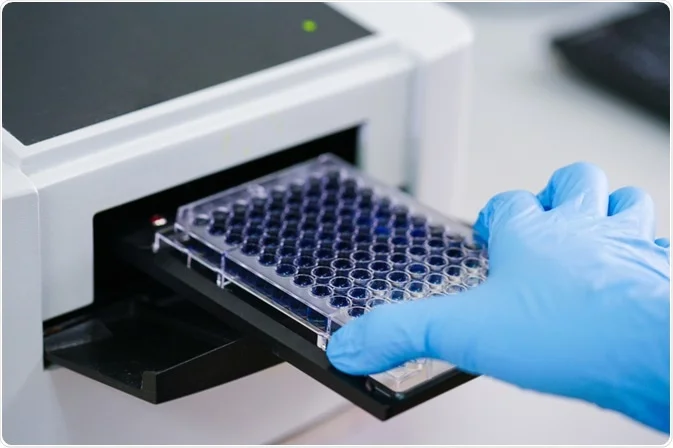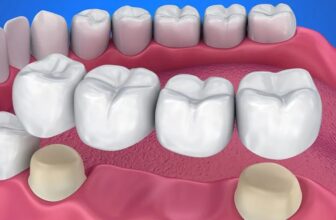
Accurate biomarker detection is of fundamental importance in modern clinical diagnostics. Accurate analysis has the potential to transform the impact of immunoassay services on healthcare delivery. Today, immunoassay service providers offer multiple methodologies around biomarker detection, qPCR analysis, Copy Number Analysis, etc. ELISA assays are one such technology offering cutting-edge solutions in clinical diagnostics.
ELISA assays are a cornerstone technique for quantifying proteins, antigens, and antibodies in biological samples. Due to its versatility, they are employed across a broad range of diagnostic applications, including biomarker analysis, therapeutic drug monitoring, and infectious disease screening. This article dives deep into the applications of ELISA assays in clinical diagnostics. It begins with discussing the technology, its applications, and ends with assay development.
ELISA assays
ELISA Assays are a powerful tool for detecting and quantifying analytes in complex biological samples. This method analyzes protein samples that are immobilized on a microplate well using specific antibodies. ELISA assays are typically conducted using 96 or 384-well microplates, where proteins and antibodies are passively bound. This immobilization and binding of reagents make ELISA assays easy to develop and perform. As the assay reactants are immobilized, separating the bound materials becomes easy. The ability to employ high-affinity antibodies and remove non-specific materials makes the ELISA assay a robust technology for detecting and measuring analytes in crude samples.
Although several ELISA variants are developed and commercially available, they all have the same underlying principle:
- Coating/capture
- Plate blocking
- Probing/detection
- Signal measurement
Alkaline phosphatase and horseradish peroxidase are the most common enzyme labels. Other enzymes used in ELISA assays include catalase, acetylcholinesterase, and β-galactosidase. Additionally, researchers have a large choice of substrates available for coupling with the assay conjugate. However, the choice of substrate depends on assay sensitivity and instrumentation used for signal detection.
Infectious disease diagnostic
Infectious disease diagnostics is the primary application for the widespread adoption of ELISA assays in clinical and healthcare settings. They play a vital role in detecting parasitic, bacterial, and viral infections through antigen/antibody detection. ELISA immunoassay service providers often support healthcare initiatives through large-scale screening and monitoring programs.
ELISA Assays have applications in multiple settings, including rapid screening for HIV, detection of other fungi, viruses, bacteria, allergens, autoimmune diseases, presence of hCG hormone, forensic toxicology, clinical and laboratory research, and other diagnostic settings.
In HIV detection, saliva or blood samples are generally tested through indirect ELISA-based analysis. ELISA is a screening method for HIV testing and not a diagnostic test. For the diagnosis of HIV, further testing is needed using Western blot due to the presence of potential false-positive results. Molluscum contagiosum is another virus that causes skin infections in children and young adults and is detected via ELISA assays.
ELISA assays are used to detect bullous pemphigoid antigen 180 and desmogleins 1 and 3 autoantibodies implicated in bullous pemphigoid autoimmune and pemphigus blistering diseases. Hence, ELISA assays have a transformative impact on infectious disease management, facilitating therapeutic interventions and rapid diagnosis for improved patient outcomes.
Biomarker detection and therapeutic monitoring
Biomarker detection and therapeutic monitoring are rapidly expanding applications of ELISA assays. These applications are supporting precision healthcare and personalized medicine approaches. ELISA assays are increasingly employed to quantify disease-specific biomarkers, including inflammatory mediators, tumor markers, and cardiac markers.
ELISA-based biomarker assays facilitate accurate, precise, and sensitive quantification of markers such as inflammatory markers and hormones in response to diverse disease states. ELISA-based assays work with multiple biological matrices, including serum, plasma, saliva, urine, cell lysates, etc. Some biomarkers that ELISA assays can work with include:
- Bone markers: Osteocalcin, PTH, P1NP, BALP, CTX
- Inflammatory markers/growth factors: IL-6, IL-1 beta, CRP, BDNF, FGF, TNF-alpha
- Hormones:, Estradiol, Cortisol, Adiponectin, Testosterone, Insulin
- Other biomarkers: ADMA, endothelin-1, Oxytocin
In therapeutic drug monitoring, ELISA assays support treatment efficacy and dosage optimization. By integrating biological assay development methodologies, researchers can customize biomarker panels to meet diverse clinical needs. However, dynamic range and sensitivity are crucial when detecting biomarkers in diverse physiological concentrations. Today, drug developers and bioanalytical laboratories are employing advanced biomarker detection systems to enhance decision-making and support paradigms in healthcare and clinical delivery.
Must Read: Role of a Bioanalytical Lab in Pharmacokinetic and Toxicology Studies
ELISA development and validation in clinical settings
A robust ELISA development and validation process is critical to ensure regulatory compliance and reliable clinical diagnostic performance. A comprehensive ELISA development and validation includes evaluating the stability, linearity, precision, and accuracy of the developed method. These assessments are critical aspects of ELISA development and validation as they address the clinical and analytical performance requirements mandated by regulatory agencies such as the US FDA.
Today, multiple specialized immunoassay service providers support clinical laboratories and drug developers with method development, validation, and optimization solutions. These service providers take utmost care in addressing reference standard requirements, standardization efforts, and quality control measures to ensure consistent performance across systems. Such robust developmental and validation initiatives ensure accuracy and compliance for clinical ELISA applications.
In conclusion
ELISA assays have diverse applications across biomarker detection, infectious disease diagnostics, and specialized diagnostic applications. However, a comprehensive development and validation protocol remains critical to ensure compliance and reliability in clinical settings.







